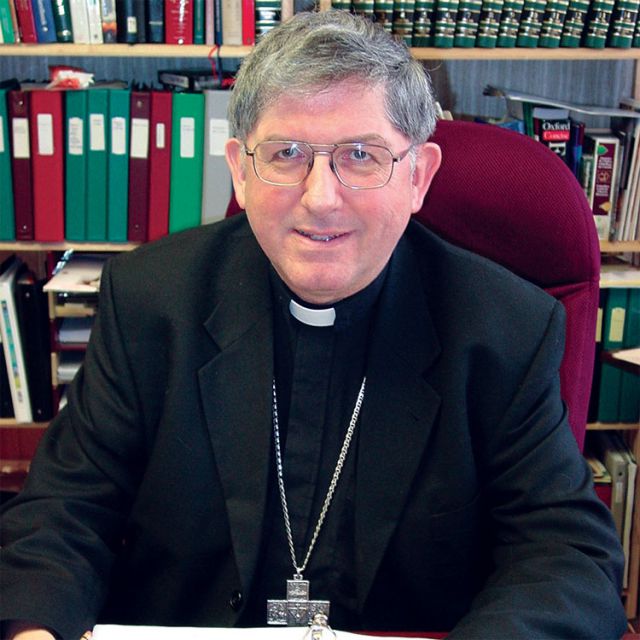TORONTO - The College of Cardinals may be poised to break with 1,300 years of tradition and elect a non-European pope but the passport of the pontiff is “essentially not relevant,” said Cardinal Thomas Collins.
“I think it could be a non-European,” Collins said. “There’s no reason why not.”
The Toronto archbishop, named a cardinal a year ago, arrived in Rome on Feb. 25 in advance of his first papal conclave. He believes the conclave may last longer than most because there are many strong candidates, including qualified cardinals from Africa, Latin America and Canada. Collins said any of them could emerge as legitimate papal contenders (the papabili) on the first day of the conclave.
“Presumably, they are all good people, but which one will have the human and spiritual qualities you need?” said Collins. “If they’re from outside Europe or inside Europe, I don’t think it matters.”
Collins points out that the first pope, St. Peter, was from the Holy Land. Through the first seven centuries of the Church, popes from the Middle East or North Africa were common. But every pope since 741 has been from Europe.
European cardinals will hold about 52 per cent of the votes, but Collins says it is important to remember that “we are cardinals of the Holy Roman Church.”
“Every country can be tempted to think that the issues that have the media buzz in that country — even issues that are in fact substantial — are the key ones. And they may well be for part of the Church, but the pope is the bishop of Rome and also the bishop of the universal Church,” he said.
It is natural to some extent for cardinals to be shaped by domestic concerns or cultural influences.
“But if ever there was a time to get beyond that, it’s when voting for the pope,” Collins said.
Collins has been studying the rules and reading the history of conclaves. Beginning March 1, the morning after Pope Benedict’s last day in office, the cardinals start discussing the priorities of the Church and the qualities needed for the next pope. Those discussions last several days before the cardinals enter the Sistine Chapel to begin the conclave.
Although Collins said he has a “certain sense of certain issues,” he is eager to digest the views of other cardinals.
“I’m going to be very intent on listening to cardinals from distant lands, or wise cardinals who have been at it for a while,” he said. “And I might say something myself. I don’t know yet.”
The Toronto archbishop is one of three Canadian voters. He’ll be joined by Cardinals Jean-Claude Turcotte, the retired archbishop of Montreal, and Marc Ouellet, the former archbishop of Quebec and currently prefect of the Congregation for Bishops. Ouellet’s name is on several media lists as a legitimate successor to Pope Benedict.
“Mind you, that’s before we really know,” said Collins. “But that’s the media buzz, with good reason. He’s a very fine man. And fortunately we have many like him.”
Whether the College of Cardinals shares the media’s enthusiasm for Ouellet will become known quickly after the conclave opens. On the first day, there is an open ballot and each of the elector cardinals, expected to be about 115 voters, can vote for anyone. A handful of leading contenders will emerge and their numbers then reduced in subsequent ballots (four per day) until one cardinal receives a two-thirds majority and becomes pope.
“At the end of the first vote the cardinals will know who the real papabili are,” said Collins. “It will be interesting to see if there is even a remote connection to the names we’ve been hearing (in the media).”
The cardinals spend evenings discussing the candidates and praying for guidance.
“People say that at night the cardinals are in the chapel praying for wisdom, or they are in places to talk and ask: ‘What about this one?’ or ‘What about that one?’ It’s actually required that cardinals talk about it.”
Although the responsibility to select a pope is immense, Collins said he has been at ease since Benedict announced he was stepping down as of Feb. 28.
“I’m just in awe at the thought of being in a conclave,” Collins said. “It’s quite momentous to think that in my life I should be so blessed to have this extraordinary experience that is so crucial to the history and life of the Church and the wider world.
“I’m not fearful about it at all. First, because we are blessed with a lot of very good people who could be pope, but also because of the prayers of people. It’s a great consolation to know you’re not alone.”



